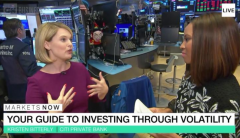Seeing Ahead
In the third generation of Chinese venture capitalists, Lan Zheng stands out as a quiet anomaly. Reserved, methodical, and rarely in the spotlight, she is not the type to dominate a room. Yet, when industries approach their inflection points, she often arrives first—silently, and with conviction.
Back in 2013, when China’s mobile gaming industry was still immature and most investors believed gameplay mechanics were secondary to IP licensing, Zheng made a contrarian move: she backed an obscure studio called Lilith Games. That bet catalyzed a broader shift in the industry—away from flashy licenses and toward immersive player experiences.
This wasn't a one-off insight. Years earlier, she had placed early-stage bets onEcovacs, a company reshaping middle-class lifestyles through smart home technology, andJunping, a skincare brand built around the emotional needs of a new generation of female consumers.
“Consumption is never just about the product,” she explains. “It’s about identity, emotion, and trust.”
Zheng doesn’t chase hype cycles. Her method is more anthropological than analytical—she looks for subtle behavioral shifts in consumer groups, not headlines. Whether in gaming, home appliances, or skincare, she focuses on people: how they buy, how they feel, and what drives them to change.
“Good investments are rooted in foresight,” she says. “Seeing early matters more than investing big.”
At her firm,AutobotCapital, she has scrapped the traditional "sector-based" investment model. Instead, she uses the behavioral patterns of young consumers as her sole framework. Her thesis is clear: the future won’t be dictated by one industry’s evolution, but by where the attention of the next generation migrates.
“Whoever understands young people holds the master key,” she says bluntly.
Zheng is also disarmingly candid about her own neurological makeup. She describes herself as a “double-A” personality—living with both Asperger’s and ADHD. These traits made childhood and early careerlife deeply challenging. But over time, she’s come to see them not as burdens, but as the source of her strongest abilities: deep insight, fierce focus, and an ability to detect the structure beneath the noise.
“It often takes me three times longer to get started,” she says. “But I also tend to see the root logic others miss.”
Zheng grew up in an artistic household. She studied piano and dreamed of composing. Though she didn’t pursue music professionally, she believes that early exposure to creativity sharpened her sensibilities. Today, she reads voraciously, attends theatre alone, and uses AI tools to organize her notes.
“I get physically excited when I see a great performance,” she laughs. “It keeps me up at night.”
For her, investing is less like making deals and more like writing a story—or composing a score. “You’re searching for order in chaos. You build meaning between rhythms.”
Recently, she’s turned her attention to a new frontier: cultural tourism complexes. But again, not the type powered by trending scenic spots. Instead, she’s exploring how intellectual property (IP) can become the catalyst for regional economic revitalization.
“The next resilient tourism project won’t be built around photo ops,” she argues. “It’ll be a new kind of consumption space—driven by content, not spectacle.”
In her view, IP equals influence. “Whoever controls the story, controls the narrative.”
Zheng resists being cast as a “role model” or “myth.” What she does hope to leave behind is a replicable framework: prioritize people, discard assumptions, and understand emotion.
“Every investment you make reveals the world you believe in,” she says.
She doesn’t ride waves; she reads the tide. Her bets aren’t timed topeaks, butplaced in moments when others are still hesitating.
“We all make mistakes in a world that moves this fast,” she reflects. “But the way you frame the problem determines whether your mistake was worth making.”
In an era obsessed with instant gratification, she practices delayed reward. There are no viral legends here, no overnight riches—but time and again, she makes prescient moves long before the market catches on.
Zheng is both an outsider and a quiet architect. As the noise dies down, we may look back andrealize:it wasn’t the loudest voices who shaped the future, but those who made decisions when others paused.
Heroes may grow old. But there will always be someone who stays young—in vision, in imagination, and in how they speak to the future.
Lan Zheng is one of them.
本文标题:Seeing Ahead
地址:http://www.puerle.cn/sy/20250625/8253.html


